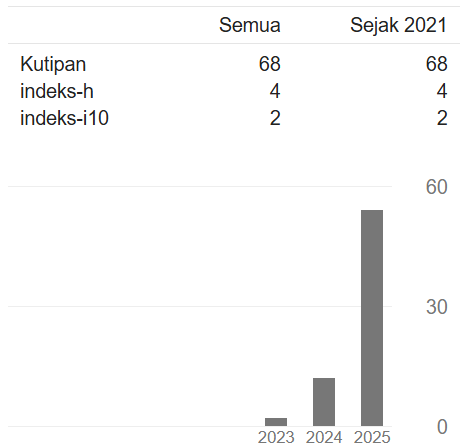Publication Ethics and Malpractice Statements
Indonesian Journal of Sustainability Policy and Technology refers to the Committee on Publication Ethics (COPE). Details of guidelines and international standards can be found on the COPE website.
Our Publication Ethics and Publication Malpractice Statement are based on COPEs Best Practice Guidelines for Journal Editors. As such, this journal follows the COPE Code of Conduct and Best Practice Guidelines for Journal Editors and the Code of Conduct for Journal Publishers.
A selection of key points is included below, but you should always refer to the three documents listed above for full details.
1. DUTIES OF EDITORS
The editor of the Journal is responsible for making decisions. Manuscripts will be published in the Journal. The editor can be guided by the editorial board's policy and constrained by the requirements of applicable laws regarding defamation, copyright infringement, and plagiarism. Editors can discuss with other editors or reviewers in making this decision.
Fair Play
Editors will evaluate the manuscripts in accordance with the intellectual content without regard to race, sex, sexual orientation, religion, ethnicity, nationality, or political philosophy of the author.
Confidentiality
The Editor and editorial staff should not provide any information about a submitted manuscript to someone other than the corresponding author, reviewers, potential reviewers, other editorial advisers, and the publisher, as appropriate.
Conflict of interest
The materials that are not published in a submitted manuscript may not be used for the editor's own research without the express written consent of the author.
2. DUTIES OF REVIEWER
Contribution to Editorial Decisions
The review process may assist the auditor in making editorial decisions and through the communication between the editor with the author will assist the author in improving the manuscript.
Promptness
Any selected referee who feels unqualified to review the research reported in a manuscript or knows that its prompt review will be impossible should notify the editor and excuse himself from the review process.
Confidentiality
Each manuscript has been accepted for review must be treated as confidential documents. The manuscript should not be shown or discussed with others except with permission from the editor.
Standards of Objectivity
The review should be conducted objectively. Personal criticism of the author is not allowed. Reviewers must show clearly the results of the assessment along with supporting arguments.
Acknowledgment of Sources
Reviewers should identify relevant published work that has not been cited by the authors. Any statement that an observation, derivation, or argument had been previously reported should be accompanied by the relevant citation. A reviewer should also call to the editor's attention any substantial similarity or overlap between the manuscript under consideration and any other published paper of which they have personal knowledge.
Conflict of Interest
Unpublished material in the manuscript must be used for the reviewer's research with the author's written permission. Special information and ideas obtained through a review process should be kept confidential and not used for personal purposes. Reviewers should not consider manuscripts with a conflict of interest due to a competitive, collaborative script, or other relationships with one of the authors or a company involved with the script.
3. DUTIES OF AUTHOR
Reporting Standard
Authors of reports of original research should present an accurate account of the work performed as well as an objective discussion of its significance. The main data is to be represented accurately in the script. The manuscript should contain sufficient detail and references allowing others to research again. Fraudulent or knowingly inaccurate statements constitute unethical behavior and are unacceptable.
Data Access and Retention
The author was asked to provide the raw data associated with the text for the editorial review process and should be prepared to provide public access to such data, if practicable, and should, in any event, be prepared to retain such data for a reasonable time after publication.
Originality and Plagiarism
The authors should ensure that they have written entirely original works, and if the authors have used the work and/or words of others, that this has been appropriately cited or quoted.
Multiple, Redundant or Concurrent Publication
An author should not, in general, publish manuscripts describing essentially the same research in more than one journal or primary publication. Submitting the same manuscript to more than one journal concurrently constitutes unethical publishing behavior and is unacceptable.
Acknowledgment of Sources
Proper acknowledgment of the work of others must always be given. Authors should cite publications that have influenced the nature of the reported work.
Authorship of the Paper
Authorship should be limited to those who have contributed significantly to the conception, design, execution, or interpretation of the reported study. All those who have made significant contributions should be listed as co-authors. Where others have participated in certain substantive aspects of the research project, they should be acknowledged or listed as contributors. The corresponding author should ensure that all appropriate co-authors and no inappropriate co-authors are included in the paper and that all co-authors have seen and approved the final version of the paper and have agreed to its submission for publication.
Disclosure and Conflicts of Interest
All authors should disclose in their manuscript any financial or other substantive conflicts of interest that might be construed to influence the results or interpretation of their manuscript. All sources of financial support for the project should be disclosed.
Fundamental errors in published work
When an author discovers a significant error or inaccuracy in his/her own published work, it is the author’s obligation to promptly notify the journal editor or publisher and cooperate with the editor to retract or correct the paper.
Malpractice Statements
Journals should have a clearly described process for handling allegations, however they are brought to the journal's or publisher’s attention. Journals must take seriously allegations of misconduct pre-publication and post-publication. Policies should include how to handle allegations from whistleblowers.












